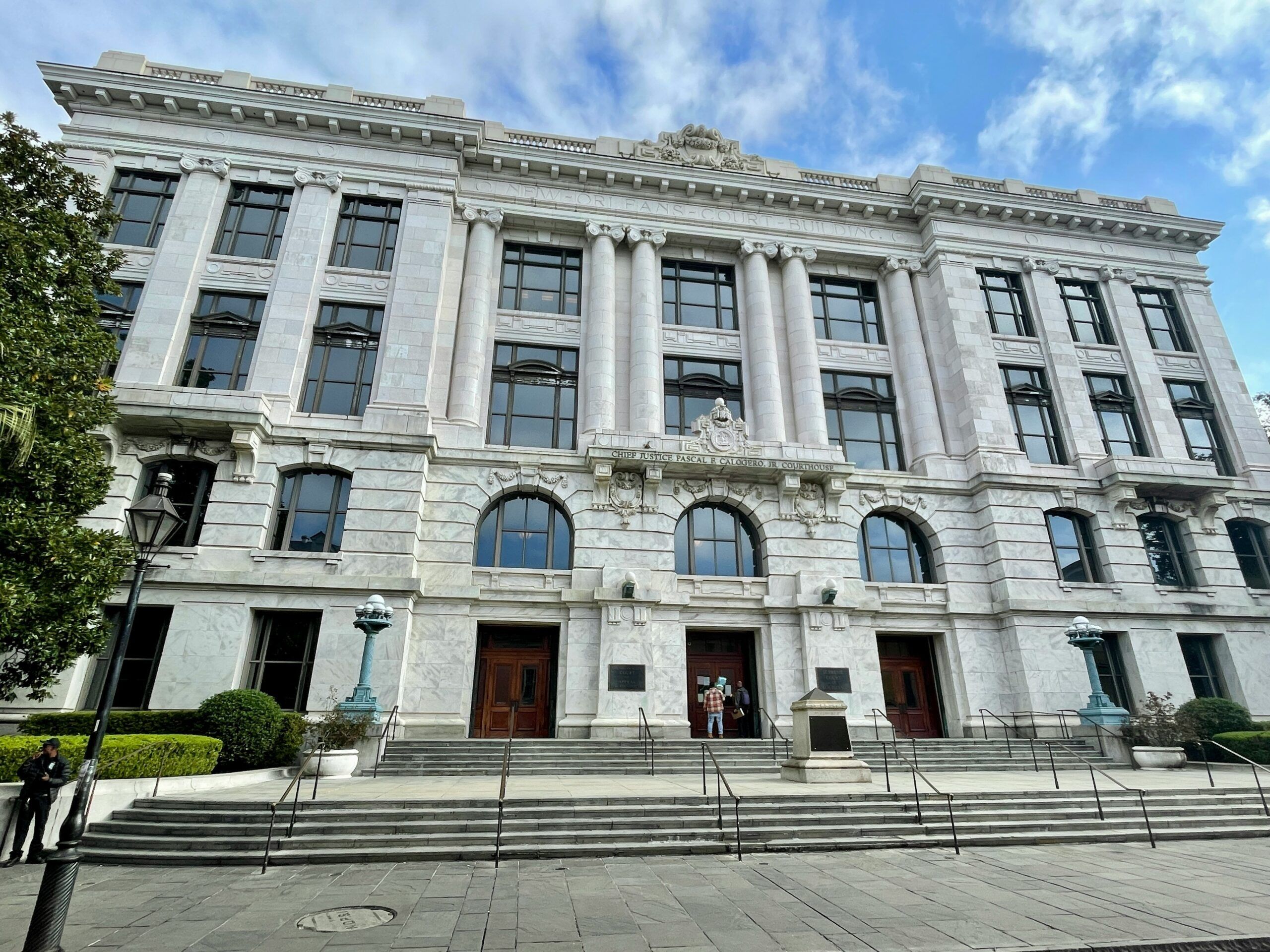April 2022 LEMR Lead Article
This article is featured in Volume 3, Number 4 of the Legal Ethics and Malpractice Reporter.
On April 13, 2022, the American Bar Association Standing Committee on Ethics and Professional Responsibility released Formal Opinion 501, which provides guidance on compliance with Rule 7.3 and its interaction with Rules 8.4 and 5.3. The Opinion begins by reminding lawyers who hold managerial or supervisory roles in their law firms of their obligations under Rules 5.3(b)–(c) and 8.4(a). KRPC Rule 5.3(b) reads:
A lawyer having direct supervisory authority over another lawyer shall make reasonable efforts to ensure that the other lawyer conforms to the rules of professional conduct.
KRPC 5.3(c) reads:
A lawyer shall be responsible for another lawyer’s violation of the rules of professional conduct if:
(1) The lawyer orders or, with knowledge of the specific conduct, ratifies the conduct involved; or
(2) The lawyer is a partner or has comparable managerial authority in the law firm in which the other lawyer practices, or has direct supervisory authority over the other lawyer, and knows of the conduct at a time when its consequences can be avoided or mitigated but fails to take reasonable remedial action.
MRPC Rule 4-5.3(b) reads:
A lawyer having direct supervisory authority over the nonlawyer shall make reasonable efforts to ensure that the person’s conduct is compatible with the professional obligations of the lawyer.
MRPC Rule 4-5.3(c) reads:
A lawyer shall be responsible for conduct of such a person that would be a violation of the Rules of Professional Conduct if engaged in by a lawyer if:
(1) the lawyer orders or, with the knowledge of the specific conduct, ratifies the conduct involved; or
(2) the lawyer is a partner, or has comparable managerial authority in the law firm in which the person is employed, or has direct supervisory authority over the person and knows of the conduct at a time when its consequences can be avoided or mitigated but fails to take reasonable remedial action.
The ABA Model Rules 5.3(b) and (c) are substantially the same as those adopted in Missouri and Kansas.
KRPC Rule 8.4(a) reads:
It is professional misconduct for a lawyer to:
Violate or attempt to violate the rules of professional conduct, knowingly assist or induce another to do so, or do so through the acts of another…
MRPC 4-8.4(a) and Model Rule 8.4(a) are the same as KRPC 8.4(a).
The overall impact of the combination of Rules 5.3(b) and (c) and 8.4(a) is that lawyers may be held responsible for the ethical breaches of others in their law firms in some circumstances. Formal Opinion 501 is specifically concerned with making lawyers understand that this liability for others in law firms whom they supervise extends to breaches of the solicitation Rules set out in Rule 7.3. KRPC Rules 7.3(a)-(b) read:
(a) A lawyer shall not by in-person, live telephone or real-time electronic contact solicit professional employment when a significant motive for the lawyer’s doing so is the lawyer’s pecuniary gain, unless the person contacted:
(1) Is a lawyer; or
(2) Has a family, closer personal, or prior professional relationship with the lawyer.(b) A lawyer shall not solicit professional employment by written, recorded or electronic communication or by in-person, telephone or real-time electronic contact even when not otherwise prohibited by paragraph (a), if:
(1) The target of the solicitation has made known to the lawyer a desire not to be solicited by the lawyer; or
(2) The solicitation involves coercion, duress or harassment.
Lawyers may be held responsible for the ethical breaches of others in their law firms in some circumstances.
MRPC Rules 4-7.3(a)-(c) read:
(a) In-person solicitation. A lawyer may not initiate the in-person, telephone, or real time electronic solicitation of legal business under any circumstance, other than with an existing or former client, lawyer, close friend, or relative.
(b) Written Solicitation. A lawyer may initiate written solicitations to an existing or former client, lawyer, friend, or relative without complying with the requirements of Rule 4-7.3(b). Written solicitations to others are subject to the following requirements:
(1) Any written solicitation by mail shall be plainly marked “ADVERTISEMENT” on the face of the envelope and all written solicitations shall be plainly marked “ADVERTISEMENT” at the top of the first page in type at least as large as the largest written type used in the written solicitation;
(2) The lawyer shall retain a copy of each such written solicitation for two years. If written identical solicitations are sent to two or more prospective clients, the lawyer may comply with this requirement by retaining a single copy together with a list of the names and addresses of persons to whom the written solicitation was sent;
(3) Each written solicitation must include the following:
“Disregard this solicitation if you have already engaged a lawyer in connection with the legal matter referred to in this solicitation. You may wish to consult your lawyer or another lawyer instead of me (us). The exact nature of your legal situation will depend on many facts not known to me (us) at this time. You should understand that the advice and information in this solicitation is general and that your own situation may vary. This statement is required by rule of the Supreme Court of Missouri.”;
(4) Written solicitations mailed to prospective clients shall be sent only by regular United States mail, not registered mail or other forms of restricted or certified delivery;
(5) Written solicitations mailed to prospective clients shall not be made to resemble legal pleadings or other legal documents;
(6) Any written solicitation prompted by a specific occurrence involving or affecting the intended recipient of the solicitation or family member shall disclose how the lawyer obtained the information prompting the solicitation;
(7) A written solicitation seeking employment by a specific prospective client in a specific matter shall not reveal on the envelope or on the outside of a self-mailing brochure or pamphlet the nature of the client’s legal problem;
(8) If a lawyer knows that a lawyer other than the lawyer whose name or signature appears on the solicitation will actually handle the case or matter or that the case or matter will be referred to another lawyer or law firm, any written solicitation concerning a specific matter shall include a statement so advising the potential client; and
(9) A lawyer shall not send a written solicitation regarding a specific matter if the lawyer knows or reasonably should know that the person to whom the solicitation is directed is represented by a lawyer in the matter.
(c) A lawyer shall not send, or knowingly permit to be sent, on behalf of the lawyer, the lawyer’s firm, the lawyer’s partner, an associate, or any other lawyer affiliated with the lawyer or the lawyer’s firm a written solicitation to any prospective client for the purpose of obtaining professional employment if:
(1) It has been made known to the lawyer that the person does not want to receive such solicitations from the lawyer;
(2) The written solicitation involves coercion, duress, fraud, overreaching, harassment, intimidation, or undue influence;
(3) The written solicitation contains a false, fraudulent, misleading, or deceptive statement or claim or makes claims as to the comparative quality of legal services, unless the comparison can be factually substantiated, or asserts opinions about the liability of the defendant or offers assurances of client satisfaction;
(4) The written solicitation concerns an action for personal injury or wrongful death or otherwise relates to an accident or disaster involving the person solicited or a relative of that person if the accident or disaster occurred less than 30 days prior to the solicitation or if the lawyer knows or reasonably should know that the physical, emotional, or mental state of the person solicited makes it unlikely that the person would exercise reasonable judgment in employing a lawyer; or
(5) The written solicitation vilifies, denounces or disparages any other potential party.
The Opinion provides three hypotheticals to help lawyers understand the interactions of these provisions. The first hypothetical involves actions by a lawyer himself. The lawyer is able to get a list of newly charged criminal defendants, telephones them, and offers “general legal services.” The lawyer does not know the people he calls, and none of them are lawyers. Thus, the question is whether the lawyer has violated Rule 7.3 by calling the defendants. The Opinion answers this with a resounding “yes”:
The communication offers to provide, or reasonably can be understood as offering to provide, legal services. The offer to provide “general legal services” reasonably can be understood by a prospective client as offering to provide legal services for a particular matter of which the lawyer has knowledge, i.e., the arrest.
The facts of the second hypothetical are more complex and involve actions not by a lawyer herself, but by others. In this hypothetical a law firm hires a “lead generator” who employs people to search the Internet looking for possible clients, including people injured in mass torts, products liability, and other cases. The lawyer lawyer in charge of law firm marketing and the lead generator have the following exchange after the lead generator has produced a list of potential clients for the law firm:
“I don’t know what you are doing, and I don’t care! Keep ‘em coming!” The lead generator responds, “We just call the people who are online discussing accidents.”
Not surprisingly, the Opinion advises that this arrangement violates Rule 7.3(a) and that the lawyer has violated multiple Rules by his actions and statements:
The lawyer, with direct supervision over the lead generator, has made no effort to ensure that the lead generator, specifically hired to generate clients, understood and would conform its actions to be compatible with the lawyer’s professional obligations. By failing to train the lead generator concerning the limitations on direct solicitation contained in Rule 7.3, the lawyer violated Rule 5.3(b), and by accepting the leads knowing they were generated through prohibited solicitation, the lawyer ratified the conduct of which he had knowledge and violated Rule 5.3(c). If the lawyer also was a partner or a lawyer with comparable managerial authority in the firm, Rule 5.3(a) would require the lawyer to “make reasonable efforts to ensure that the firm has in effect measures giving reasonable assurance that the person’s conduct is compatible with the professional obligations of the lawyer.”
In a note to this hypothetical, the committee indicated that it held the lawyer “to have ‘knowledge’ when the lawyer consciously, deliberately failed to inquire into the facts of a matter.”
In the third hypothetical, a paralegal in a law firm is discovered to be moonlighting as a paramedic. When confronted by her supervising lawyer about her second job, she tells him that she has been helping the law firm by handing out the firm’s cards to injured people when they are transported by ambulance. Upon investigation of this story, several new firm clients confirm that the paralegal’s story was true and that was how they had heard about the firm. Upon learning all of this, the supervising lawyer, rather than being horrified by the clear violation of the Rules, congratulates the paralegal and promises a bonus. The Opinion states:
No lawyer at the firm made any effort to train or ensure that the paralegal’s conduct comported with the professional obligations of a lawyer. In fact, the paralegal’s supervisory lawyer has knowledge of the specific conduct and has ratified the conduct by speaking of it approvingly and suggesting the paralegal would receive a bonus for bringing in new clients. Therefore the supervisory lawyer has violated Rules 5.3(b) and (c).
Because no partner or managing lawyer has in place measures giving reasonable assurances that nonlawyers’ conduct is compatible with the professional obligations of the lawyer, they have violated Rule 5.3(a).
It really is rather hard to believe that an experienced lawyer would react as hypothesized. A clearer case of “ambulance chasing” is hard to imagine!
In the final hypothetical, a lawyer asks a banker to hand out his business card to bank customers who might need estate planning work. The Opinion states that this does not violate the Rules:
The conduct does not violate Rule 7.3 because the actions are not solicitation as defined by paragraph (a). The lawyer did not target a specific person the lawyer knew or reasonably should have known was in need of legal services in a particular matter, nor communicate or direct communications with that person. The lawyer has no authority over the banker’s conduct, does not control either the content of any communication the banker makes nor even whether any communication occurs at all. The banker’s communication with bank customers should not reasonably be construed as an offer to provide legal services, because the banker is not authorized to make that offer on behalf of the lawyer. The communication, if one occurs at all, is a recommendation, the type of “word-of-mouth” referral that is permissible under Rule 7.3. Moreover, because the lawyer is not directing what the banker should say and the banker’s customers are not speaking directly to the lawyer, the lawyer’s request to the banker is permissible.
Under the facts given in the hypothetical, the Opinion’s conclusion seems correct. Lawyers often expand their business by asking friends and clients to refer their friends and business acquaintance referrals. Nonetheless, it is important for lawyers who do this to be sure that the conditions stated in the Opinion, such as having no “authority” over the person making the referral, are met.
Formal Opinion 501 is an extremely useful guide to the interactions among multiple Rules and serves as a reminder to lawyers generally that they have responsibility to ensure that their staff follow the Rules as required in Chapter 5.
Read the April edition of LEMR
About Joseph, Hollander & Craft LLC
Joseph, Hollander & Craft is a premier law firm representing criminal, civil and family law clients throughout Kansas and Missouri. When your business, your freedom, your property, or your career is at stake, you want the attorney standing beside you to be skilled, prepared, and relentless. From our offices in Kansas City, Lawrence, Overland Park, Topeka and Wichita, our team of 20+ attorneys has you covered. We defend against life-changing criminal prosecutions. We protect children and property in divorce cases. We pursue relief for victims of trucking collisions and those who have suffered traumatic brain injuries due to the negligence of others. We fight allegations of professional misconduct against doctors, nurses, judges, attorneys, accountants, real estate agents and others. And we represent healthcare professionals and hospitals in civil litigation.












